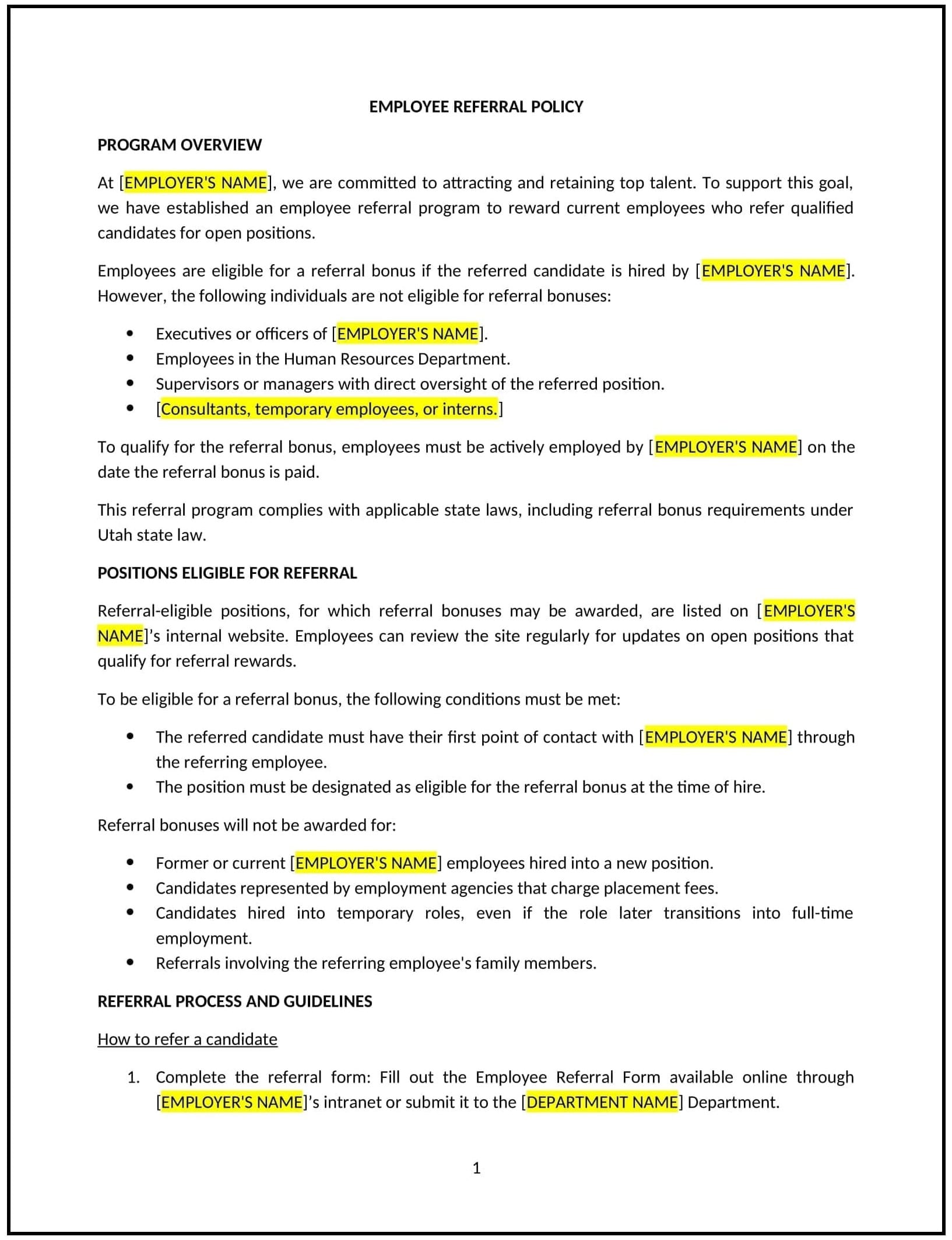Got contracts to review? While you're here for policies, let Cobrief make contract review effortless—start your free review now.

Customize this template for free
Employee referral policy (Utah)
This employee referral policy is designed to help Utah businesses encourage employees to refer qualified candidates for open positions. It outlines the referral process, eligibility criteria, and incentives for successful referrals.
By adopting this policy, businesses can attract high-quality candidates, reduce recruitment costs, and align with general best practices for talent acquisition.
How to use this employee referral policy (Utah)
- Define eligibility: Specify which employees are eligible to participate in the referral program.
- Outline the referral process: Provide steps for employees to submit referrals, including required information about the candidate.
- Set incentives: Define the rewards for successful referrals, such as cash bonuses or gift cards.
- Establish criteria: Outline the qualifications candidates must meet to be considered for referral incentives.
- Communicate the policy: Share the policy with employees and include it in the employee handbook.
- Monitor referrals: Track referral submissions and outcomes to ensure fairness and transparency.
- Review and update: Regularly assess the policy to ensure it aligns with business needs and recruitment goals.
Benefits of using this employee referral policy (Utah)
This policy offers several advantages for Utah businesses:
- Attracts quality candidates: Leverages employees’ networks to find qualified candidates.
- Reduces recruitment costs: Lowers expenses associated with external recruitment agencies or job postings.
- Enhances employee engagement: Encourages employees to participate in the hiring process and contribute to the company’s success.
- Aligns with best practices: Provides a structured approach to managing employee referrals.
- Speeds up hiring: Shortens the time-to-hire by tapping into employees’ networks.
Tips for using this employee referral policy (Utah)
- Communicate the policy: Share the policy with employees and highlight the benefits of participating.
- Provide training: Educate employees on the referral process and how to identify qualified candidates.
- Monitor referrals: Track referral submissions and outcomes to ensure fairness and transparency.
- Reward promptly: Provide incentives quickly to maintain employee motivation and engagement.
- Update regularly: Assess the policy annually to ensure it aligns with business needs and recruitment goals.